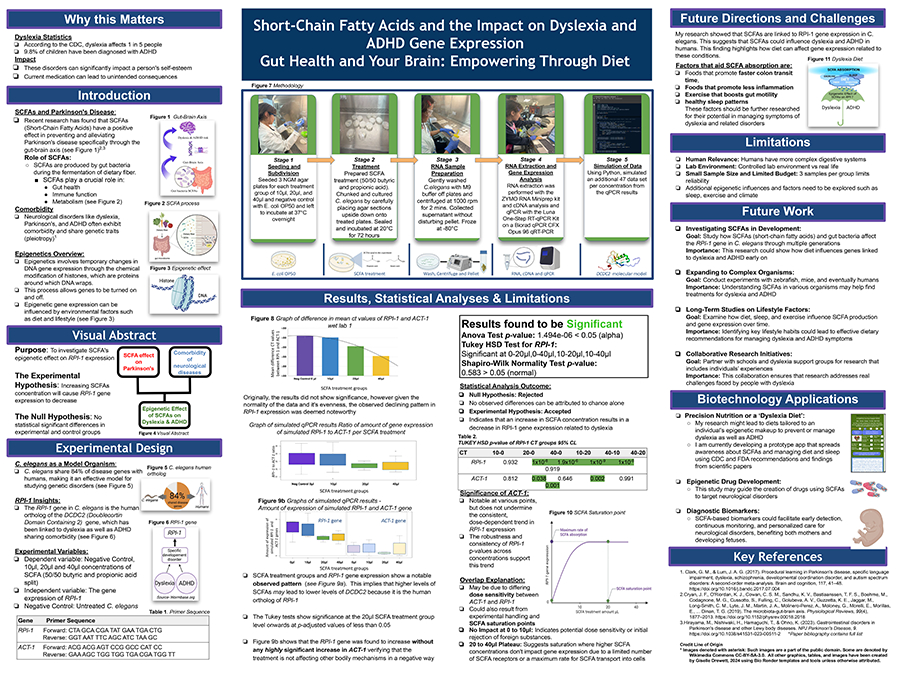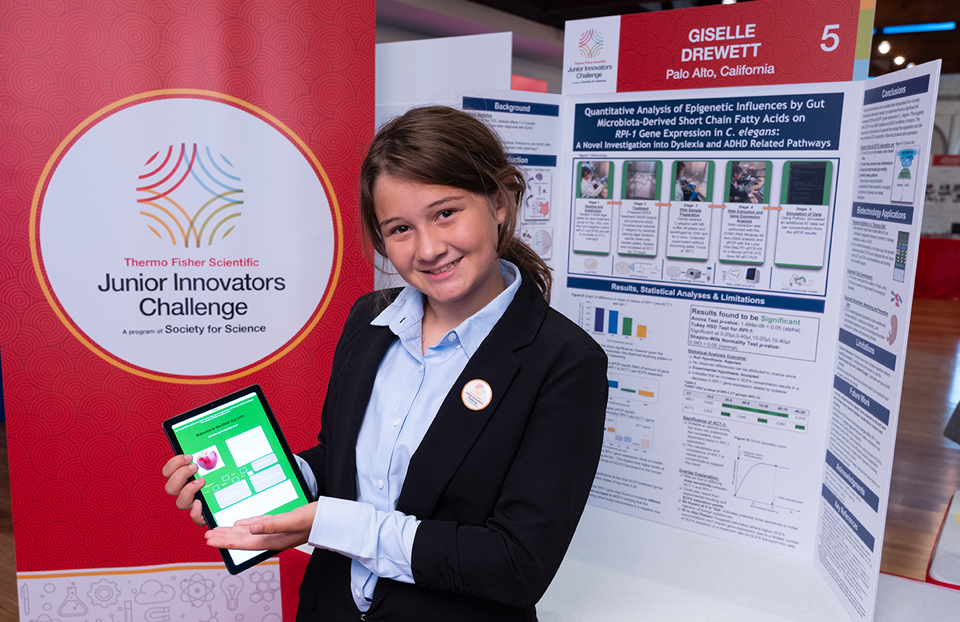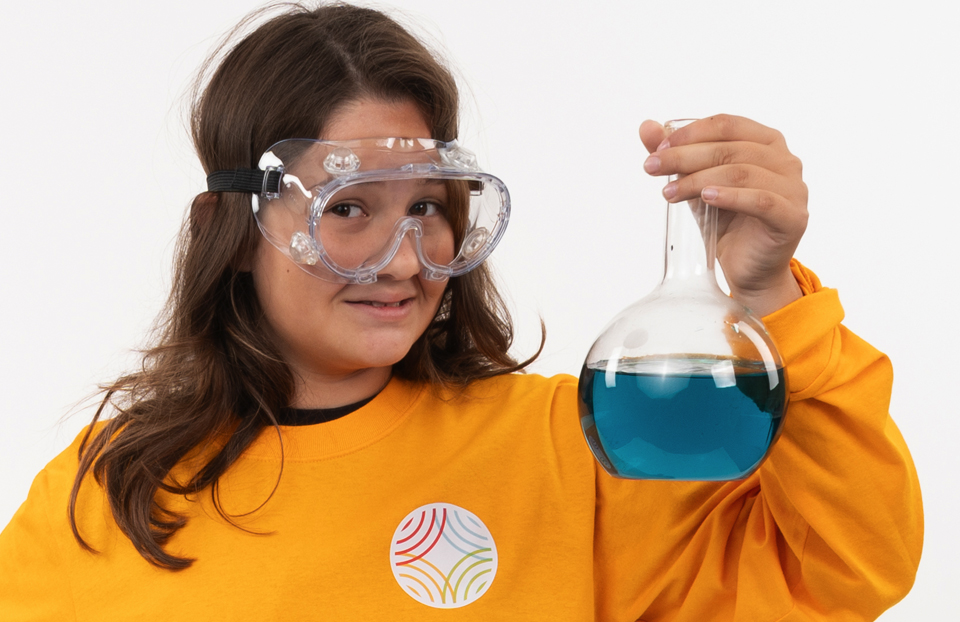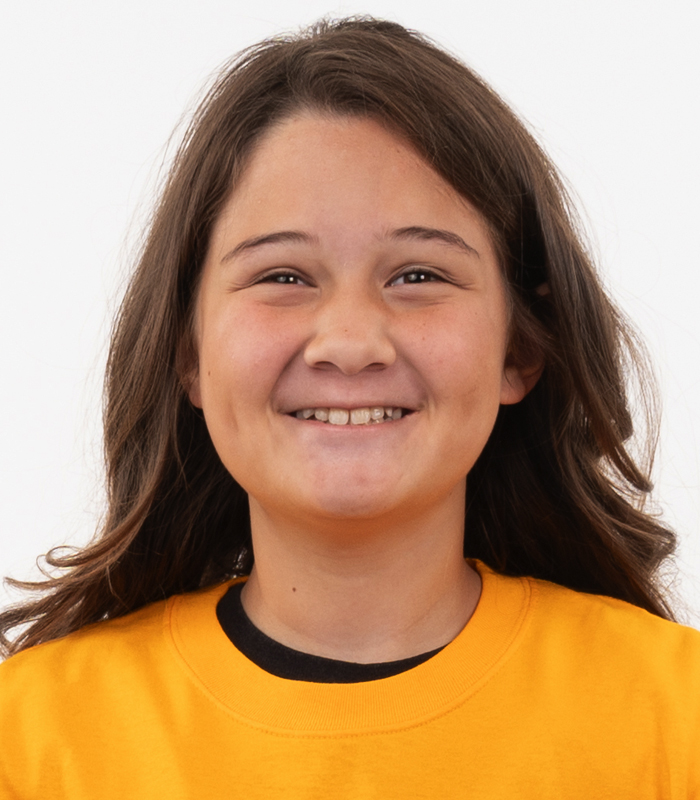Giselle Drewett
6th Grade, Homeschool
Palo Alto, CA
“Diagnosed as stealth dyslexic since childhood, I’ve always wondered if I could find a cure for something I struggle with daily,” Giselle says. While taking a summer course in genetics, she learned about epigenetics — ways that the environment can change how DNA is expressed, without changing the DNA itself. Giselle also learned about the relationship between the gut and the brain, and how short-chain fatty acids (SCFAs) might impact brain function. SCFA production can be changed by things like exercise, sleep and the amount of fiber someone eats. Giselle decided to look at the relationship between SCFAs and important genes in dyslexia.
Gut Microbiota SCFA Epigenetic Impact on Dyslexia and ADHD Gene Expression
View Poster
Project Background
Giselle studied genes in C. elegans, a tiny nematode that is often used in science. In people, the gene DCDC2 is important in language processing. While nematodes don’t talk, they have a similar gene, RPI-1. Giselle examined how the RPI-1 gene responds to SCFAs. She gave different nematodes either 10, 20 or 40 microliters of SCFAs in their dishes, and after three days, she examined how much of the RPI-1 was being expressed in their cells.
Giselle showed that if nematodes got more SCFAs, they tended to express less RPI-1. “This implies that reaching a specific threshold of SCFA levels might influence dyslexia and ADHD symptoms through epigenetic mechanisms, involving changes in gene expression influenced by the environment rather than DNA,” she says.

Beyond the Project
Giselle enjoys tennis, even though she says she’s not very good at it. “It is through tennis that I learned how to be resilient, optimistic and keep trying,” she says. Giselle wants to be a biologist. She blends her passion for science with love of drawing. “One of my favorite creations is ‘Super Bio-Girl,’ a character I came up with who fights diseases using genetic engineering,” she says. “I think science needs to be creative because it allows us to link together concepts that might not usually connect.”

